The Cultural Industry must have the task of revival in the new era.
In 1943, we had an Outline on Vietnamese culture and in the early days of the country's founding, the Party and Uncle Ho organized many cultural activities, in which the first Cultural Conference put forth guidelines that still retain their value today.
Looking back at the time when the country first gained independence, driving out the enemy and overthrowing the old regime was a revolutionary task, but the more important task was to build a new regime. Building a new regime must have education and culture, not just economics , because culture is related to people, and revolution, at its core, is also people.
People must have culture, knowledge and political awareness. Therefore, having a cultural mechanism is natural for a State. In the context of too many shortages, but from the beginning, culture has accompanied the development of the country and the nation, as a spearhead, a tool, a weapon.
Very early on, Uncle Ho stated that “Culture must light the way for the nation to go.” This was the earliest statement as the head of state raising issues related to culture. Although Uncle Ho very modestly stated that it was just his personal opinion, he raised a very fundamental issue about culture.
Up to today, we have seen very clearly that culture is a resource, a driving force, a soft power. “Soft power” is sometimes greater than hard power, than weapons, than economic potential. Therefore, culture must be placed on par with economics and politics. Our country has come a long way but has encountered many difficulties, sometimes the first difficulty is people, people’s hearts, human qualities. These are also the challenges that the cultural sector must have the task of reviving in the new era.
(Historian DUONG TRUNG QUOC, Vice President and General Secretary of the Vietnam Historical Science Association)
Culture is first and foremost
Vietnam is a country with a long history and culture is the quintessence condensed from history. Therefore, Vietnamese culture is not only rich and diverse but also has invincible and boundless strength.
The history of the Vietnamese people has overcome the dangerous challenge of being under Chinese domination for 1,000 years but not losing our national identity. We talk a lot about armed uprisings, but that does not explain why our people have done something unique in human history: Being assimilated by a great culture, we still maintain our identity. That is because we lost our country but not our village.
All traditional cultural values are preserved behind the bamboo fences of the village. The image of losing the country but not the village speaks to the role of culture. If culture exists, the nation exists. Culture is the first and most important thing. Therefore, when the country was entering the difficult resistance war against the French, in 1946 President Ho Chi Minh still decided to organize the first National Cultural Conference. It was not only a cultural story but also a story of promoting patriotism and the strength of the great national unity bloc in the highest way; it was the "Dien Hong Conference" of the new era. Until the country was about to enter the era of rising up, General Secretary Nguyen Phu Trong also chaired the National Cultural Conference in 2021, mobilizing the strength of the nation into the new era.
To promote the particularly important role of culture for the nation, we must understand that culture is condensed in people. Culture, besides its boundless and invincible power, is also a great resource. We exploit culture not only to beautify life but also to exploit national strength. More than ever, entering a new era, we must turn everything we have into a competitive advantage, doing it our own way, with Vietnamese culture. Culture must be considered "soft power", the foundation of sustainable development.
Vietnam already has “power”, we need “position”, a very strong national position in the international arena. In the past 10 years, the world has assessed Vietnam as the country with the fastest growing national brand. Our position is very high because of the Vietnamese people, diplomatic and political culture. What we do to make the world wary is “using the constant to respond to all changes” according to Ho Chi Minh’s thought.
Culture is to maintain core values, national independence, national interests, and people's happiness are the foundations. But strategy is flexible, it is the spirit of Vietnamese culture. When talking about culture, we must understand that spirit in the new era. Culture must be promoted, exploited, and transformed into the strength of the nation for new development.
(Prof. Dr. VU MINH GIANG - Vice President of Vietnam Historical Science Association, Member of National Cultural Heritage Council)
Culture is highly valued in the integration period.
Currently, there are 4 important resolutions considered as the "four pillars" to develop the country, entering a new era. Recently, the Politburo assigned the Government Party Committee and the Ministry of Culture, Sports and Tourism to draft the Politburo's Resolution on reviving and developing Vietnamese culture in the new era . I think that is a big step forward, further affirming the position of culture, further affirming the attention and high appreciation of the Party and State leaders for the role of culture in the integration period.
Celebrating the 80th anniversary of the establishment of the Culture sector, through many historical periods, many generations of leaders of the Ministry, in the process of development, sometimes separated, sometimes merged, but the role and position of the sector has always been promoted. And in recent years, especially since the renovation until now, culture has had an increasingly important position, "culture is the soul of the nation". In the current stage of building a socialist country, not only economic and social development, but culture must always go hand in hand.
Continuing and promoting the value of the 1943 Cultural Outline , we have affirmed that, in any historical period, whether war or peace, our Party and State always pay attention to culture. Of course, depending on the context of each period, culture has different tasks, but culture always affirms its great role, "Culture must light the way for the nation to go" as Uncle Ho taught.
Entering a new era, there are many opportunities but also great challenges. We must not only develop economy, politics, national defense, and security, but also pay attention to the issue of how to integrate and promote identity. Open development, foreign factors have a great impact on culture, so we must pay attention to the issue of ideology and ethics. Talking about culture means talking about national traditions and ideology and ethics.
Building on the achievements and important foundations that have been established, with new momentum and determination, the entire industry will continue to reap many achievements, promoting the development of culture in the new era.
(Assoc. Prof. Dr. DO VAN TRU, Chairman of Vietnam Cultural Heritage Association)
Culture must be identified as a resource in the new era.
The 80-year journey of the Cultural sector has had many proud achievements. The Central Resolutions on building and developing culture have been concretized and widely implemented at the grassroots level.
Entering a new era with the general development of the country, in my opinion, in the coming time, the Cultural sector needs to focus on two major contents to achieve the expected results. The first and most core issue is to revive the national culture; not only preserve the values
Core traditions that culture must be spread widely in social life. Culture is cultivated from lifestyle to form ethical style, civilized and healthy lifestyle to "restrain" the problem of social morality that has been and is deteriorating.
Over the years, culture has been developed through many practical activities, but cultural assets have not been fully collected, researched and systematized: From Han Nom heritage, ethnic minority heritage, cultural and artistic heritage... These heritages need to be carefully researched and oriented for revival. About 30 years ago, the Vietnamese Encyclopedia was initiated, "framed" and divided into many volumes, with fields of culture, fine arts, architecture...; but until now it has not been published, which is a pity. If we talk specifically about culture, we think that the Cultural sector should develop an Encyclopedia of Vietnamese culture and art, so that the public can access and learn more in an official and complete way.
Entering the new era, culture must be identified as a resource for social development, even an economic resource, so there need to be policies and solutions to promote the stronger development of the cultural industry.
Having worked in the industry for many years, I have also drawn out some core issues: When cultural values are given attention and oriented as a development axis, it is one of the conditions to promote the general socio-economic development of the locality. With a heritage city like Hue, the cultural sector is not only operating in a normal professional manner but must be viewed as a pivot to create connections to promote local socio-economic development.
Researcher NGUYEN XUAN HOA, former Director of the Department of Culture and Information of Thua Thien Hue province (now the Department of Culture and Sports of Hue city)
Investing in culture is a very important task.
From the perspective of someone who is involved in music education - an art form that has made important contributions to Vietnamese culture, I would like to share a few aspirations.
In the history of the nation, many periods of music have been paid attention to by dynasties and the State, investing in both human and material resources, thereby creating valuable achievements and legacies for posterity. On the contrary, music in each period has also contributed significantly to the cause of building people and the country. From this reality, it can be seen that investing in culture is an extremely important task. In the current context, the construction and development of the cultural industry further affirms the soft power of culture not only in politics but also in the economic field.
Developing the cultural industry (including music) means turning culture and music into market products. However, it is important to note that we should not get carried away by profit, and not focus too much on the entertainment function while overlooking other core values of music: Education, aesthetics, community bonding, continuing traditions and expressing national cultural identity.
People are the center of all social activities, including culture. Therefore, education and training must be considered the starting point as well as the ultimate goal of cultural activities.
(Assoc. Prof. Dr. NGUYEN THI MY LIEM, Vice President of Ho Chi Minh City Music Association)
It is necessary to synchronize solutions, especially focusing on training high-quality human resources.
In the process of national development, culture has always been affirmed as “the spiritual foundation of society, both the goal and the driving force of development”. However, reality shows that the management of culture and heritage still faces many challenges.
The spread of culture in community life is not uniform; a part of society is not yet fully aware of the value that culture brings and the team working on culture has not yet fully conveyed the message to the public. I believe that culture needs to be viewed both in historical depth and in relation to the diverse changes of contemporary life, in order to not only preserve but also promote its value in the context of international integration.
A notable experience is the “cultural-heritage cycle model” by Simon Thurley (UK, 2005), emphasizing the process of understanding - appreciating - preserving - enjoying - learning, forming a sustainable circle. This is a useful suggestion for cultural-heritage management in Vietnam.
In addition, training of cultural and heritage human resources is still a big gap. Especially in the field of heritage preservation, our country does not have a formal training program, no specialized center; most of the staff work based on experience, leading to many limitations. If there is no strong investment, the risk of losing the next generation is foreseeable.
Over the past 80 years, the cultural sector has contributed to fostering national identity and promoting Vietnam’s image to the world. However, for culture to truly become the “soft power” of the country, it is necessary to synchronously implement solutions: building institutions, improving management capacity and especially focusing on training high-quality human resources.
(Assoc. Prof. Dr. LAM NHAN, Principal of Ho Chi Minh City University of Culture, Vice President of Vietnam Folk Arts Association)
Culture is the spiritual strength of the nation.
Celebrating the 80th anniversary of the establishment of the Cultural sector on the occasion of the 80th anniversary of the National Day of the Socialist Republic of Vietnam, we deeply feel the honor and pride to join hands to contribute to the prosperous development of the country.
This is an opportunity to look back on the glorious journey of an industry that has always played the role of a “lighting torch” for the nation. From the early days of the arduous resistance war, culture and art have become a spiritual weapon, arousing patriotism and the strength of national unity; in the period of peace, innovation and integration, the cultural industry continues to promote traditional identity, integrate the quintessence of humanity, contributing to building an advanced Vietnamese culture with a strong national identity.
Over the past 8 decades, the cultural sector has not only enriched the spiritual life of the people but also affirmed the soft power of the country in the international arena. The brilliant achievements of the sector are vivid evidence of the correct policies of the Party and the State; at the same time, they are the pride of generations of artists who have devoted themselves to the common cause.
(Meritorious Artist NGUYEN HAI LINH - Director of Vietnam National Music, Dance and Singing Theater)
Reading culture has made its mark.
Over the past 80 years, the cultural sector has achieved many great achievements, making important contributions to the cause of building and defending the Fatherland, while preserving and promoting national identity, improving the cultural and spiritual life of the people. In that overall picture, the development of reading culture and library activities stands out as a bright spot, contributing to building a learning society, promoting the process of accessing knowledge for all classes of people.
From the initial difficulties, with the investment of the State and the determination of the entire industry, the library network has been formed and developed widely in Vietnam. Many creative service models such as "books looking for people", mobile libraries, community bookcases, reading corners at grassroots cultural institutions have helped bring books and knowledge closer to people, even in remote, isolated, border areas, and places with many difficulties.
An important milestone is that after the consultation efforts of the Ministry of Culture, Sports and Tourism and the whole industry, the Library Law was passed by the National Assembly in 2019; the Project on developing reading culture in the community, the Digital Transformation Program of the library sector were approved by the Prime Minister. All of these have created a legal corridor and a solid driving force for the development of the system in Vietnamese libraries, towards standardization and modernization. Along with innovation in management and improvement of service quality, the promotion of information technology application has helped many digital libraries to be formed, expanding access to information and knowledge resources, creating conditions for people to learn for life anytime, anywhere.
With the attention of the Party and State, the support of all levels and sectors, especially the entire cultural sector and the people, library activities and reading culture will continue to be strongly promoted, making practical contributions to the development of culture and building a prosperous and happy Vietnam.
(Dr. VU DUONG THUY NGA, former Director of the Library Department, now the Department of Grassroots Culture, Family and Libraries - Ministry of Culture, Sports and Tourism)
Source: https://baovanhoa.vn/van-hoa/de-van-hoa-vung-buoc-vao-ky-nguyen-moi-163005.html



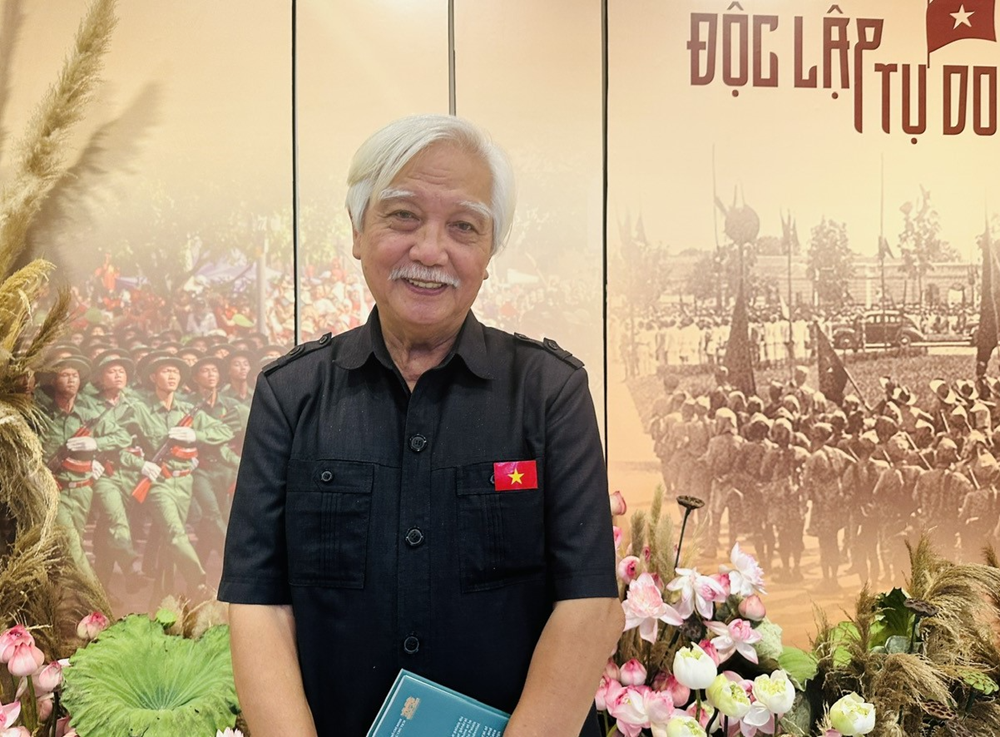
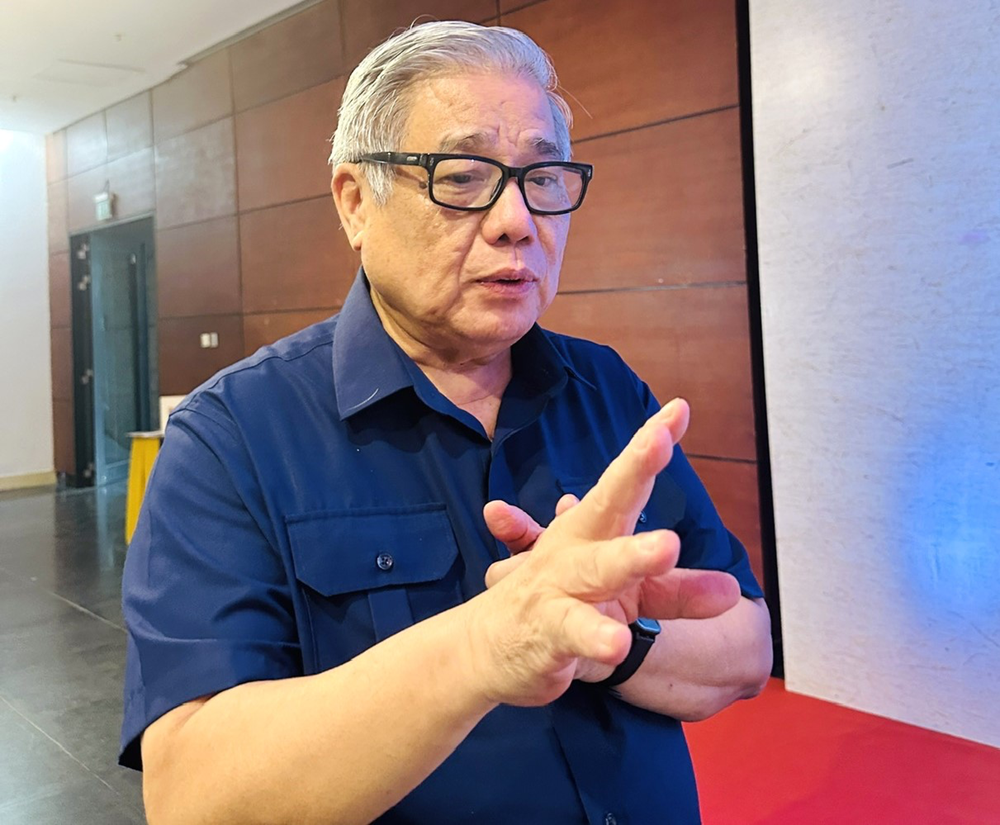
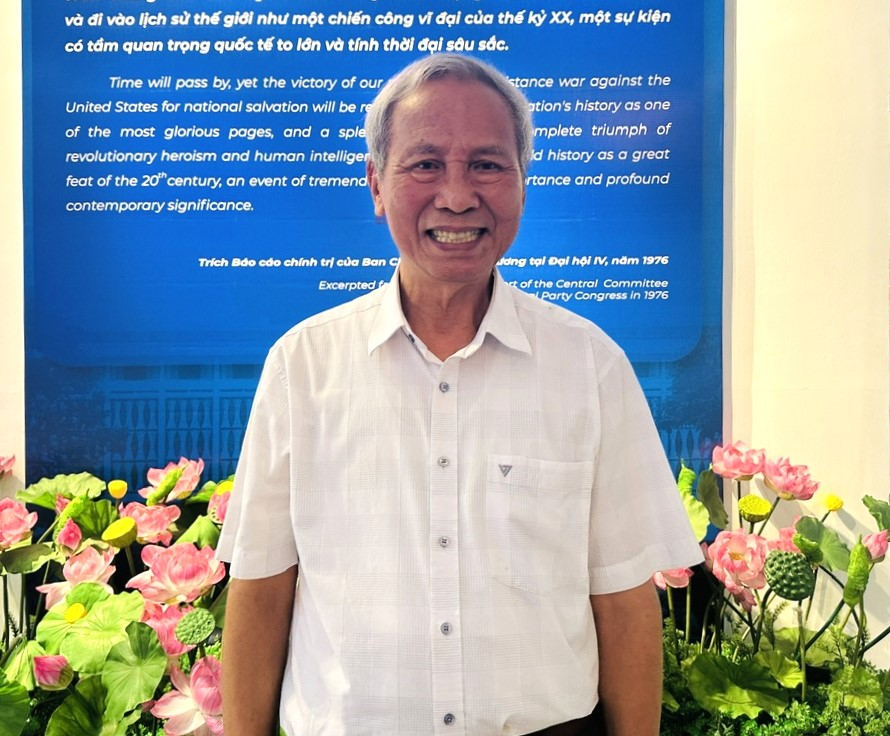
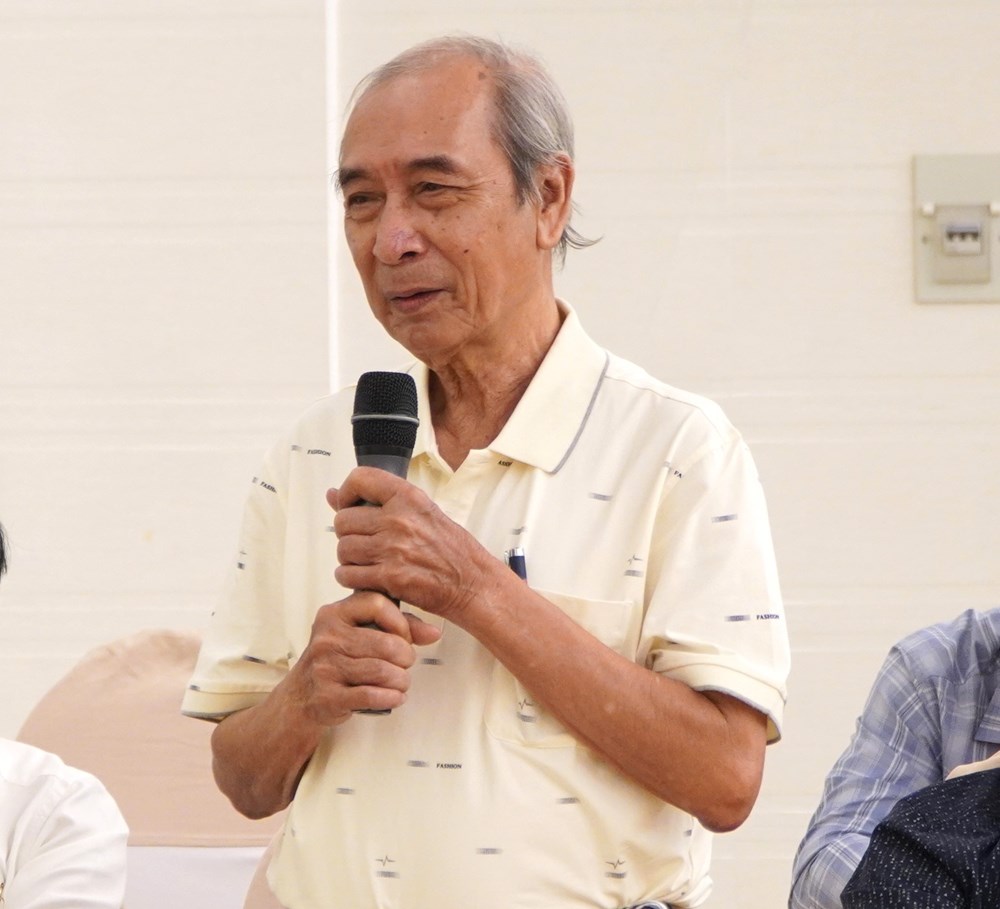
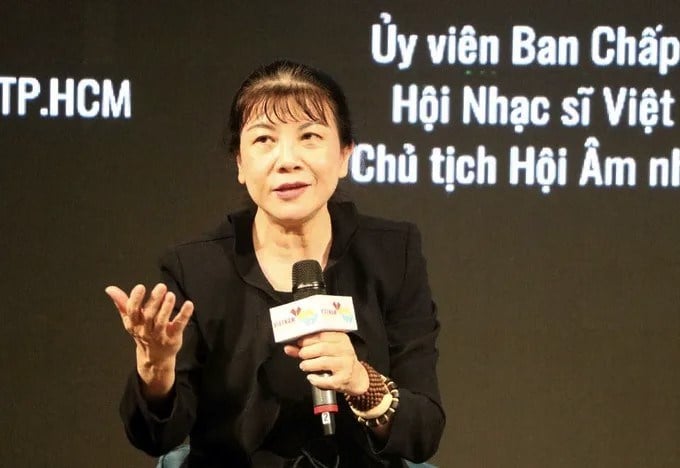
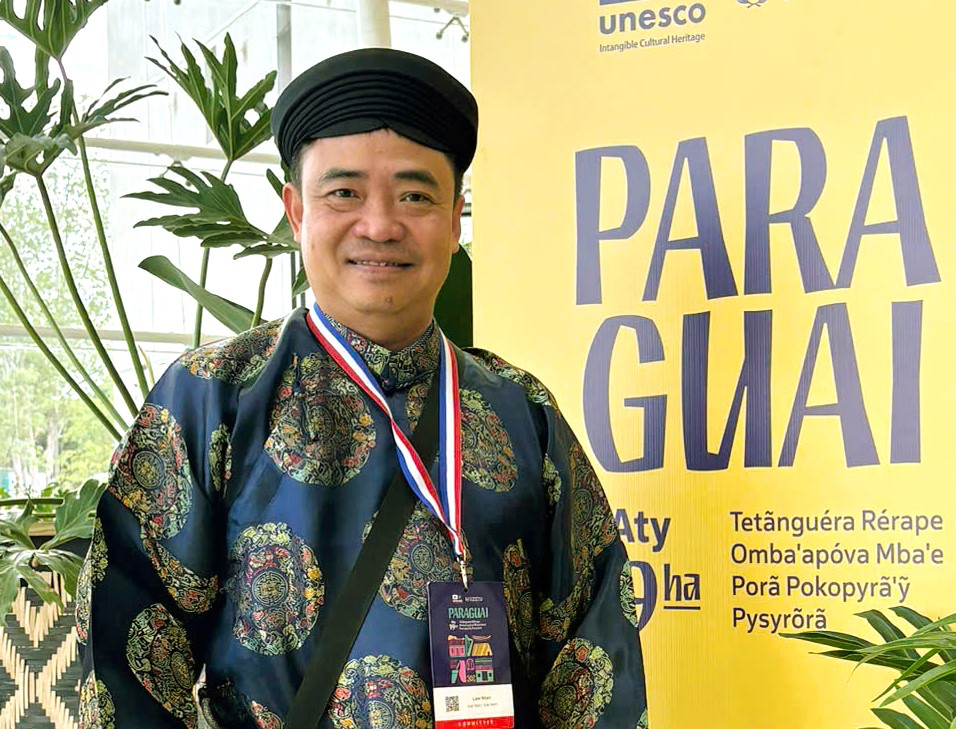
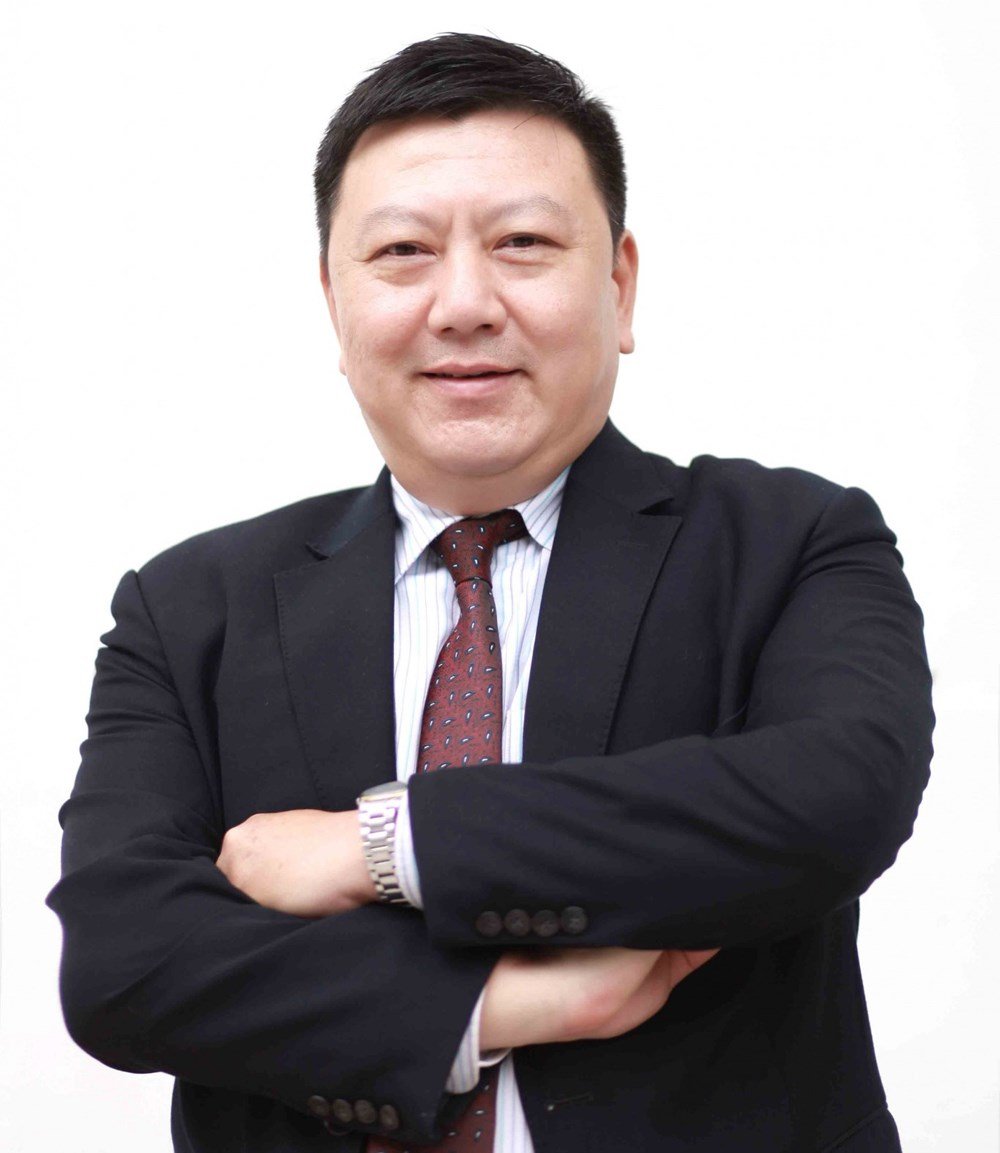
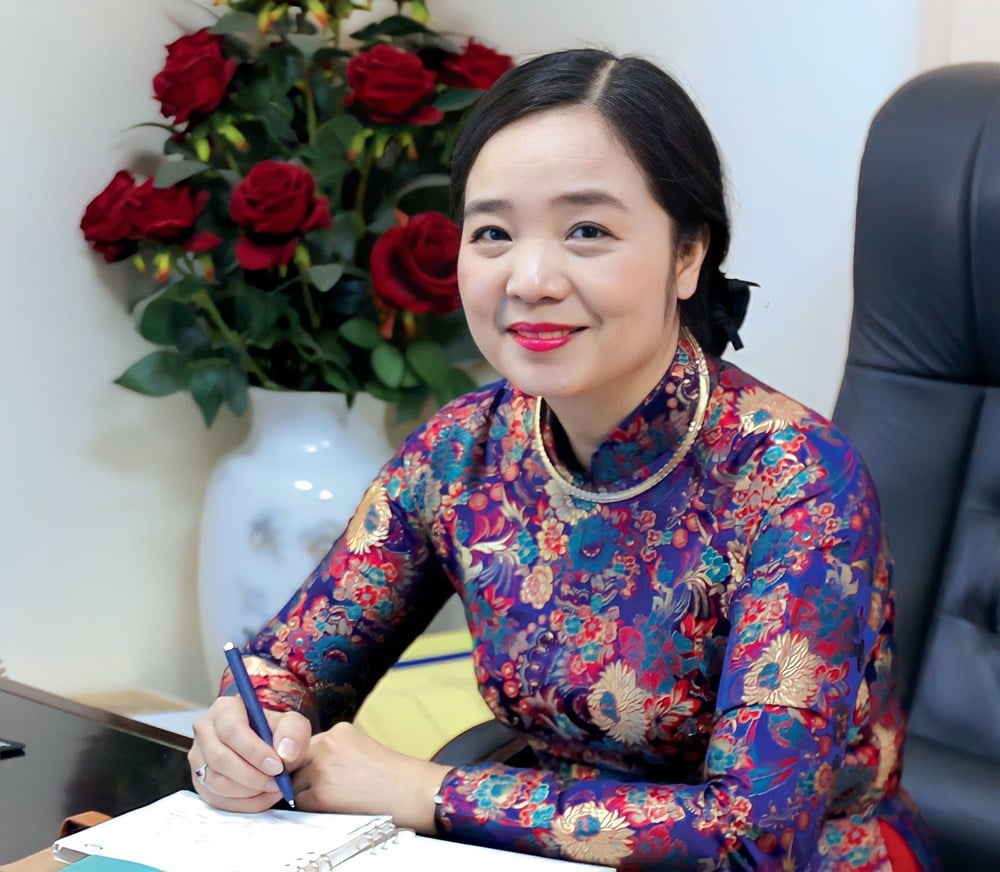
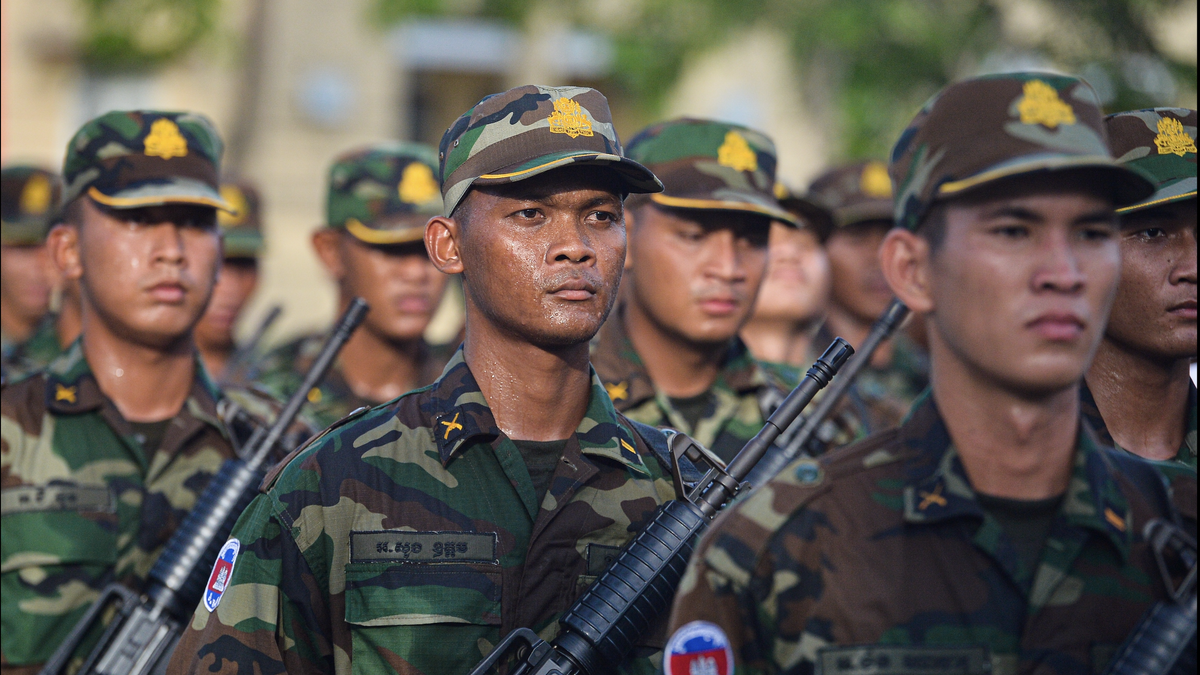



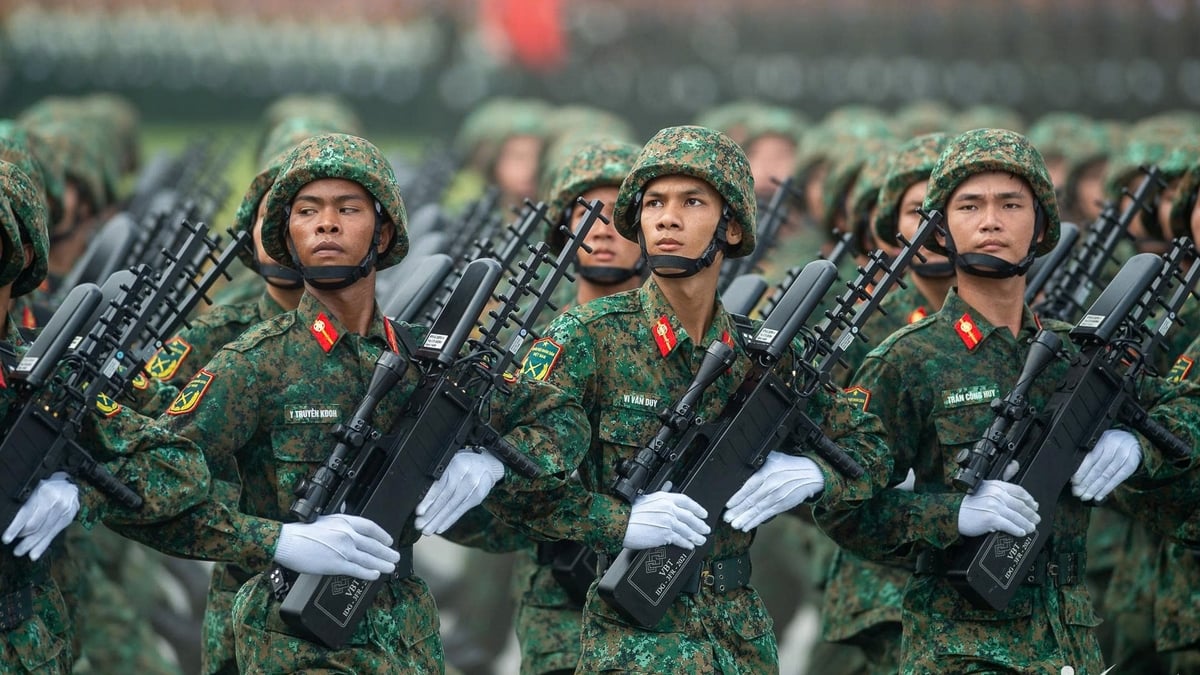



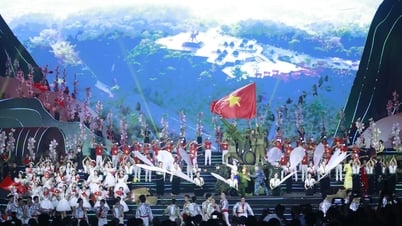

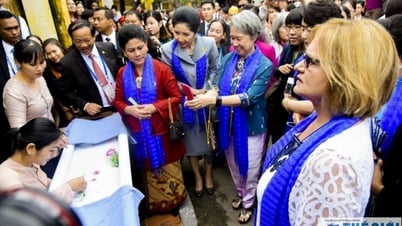


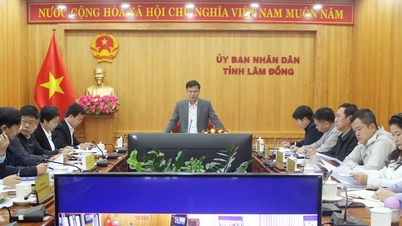

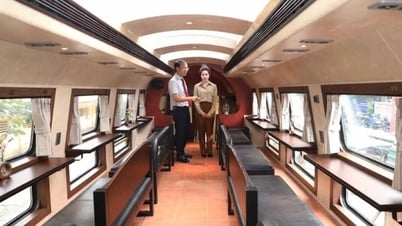



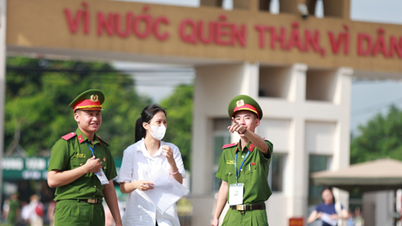
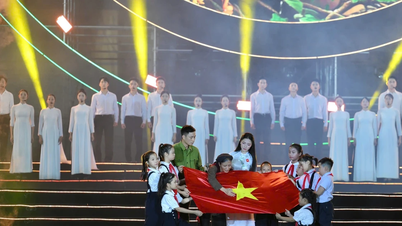

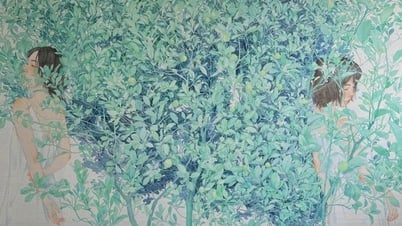

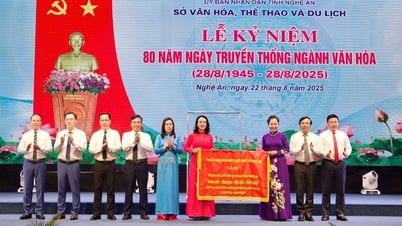
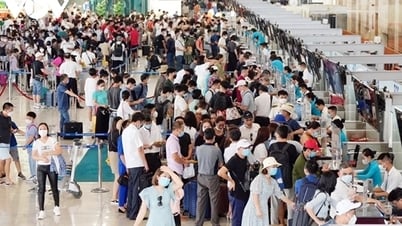




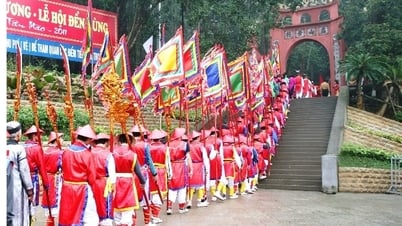
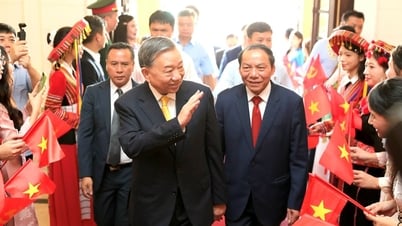
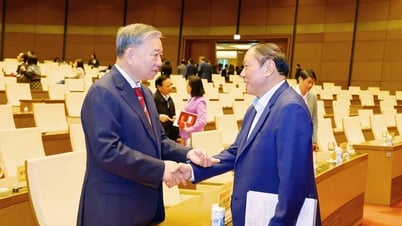
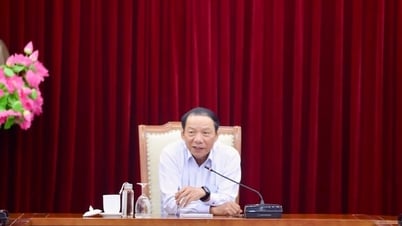


![[Photo] President Luong Cuong attends special political-artistic television show "Golden Opportunity"](https://vphoto.vietnam.vn/thumb/1200x675/vietnam/resource/IMAGE/2025/8/22/44ca13c28fa7476796f9aa3618ff74c4)
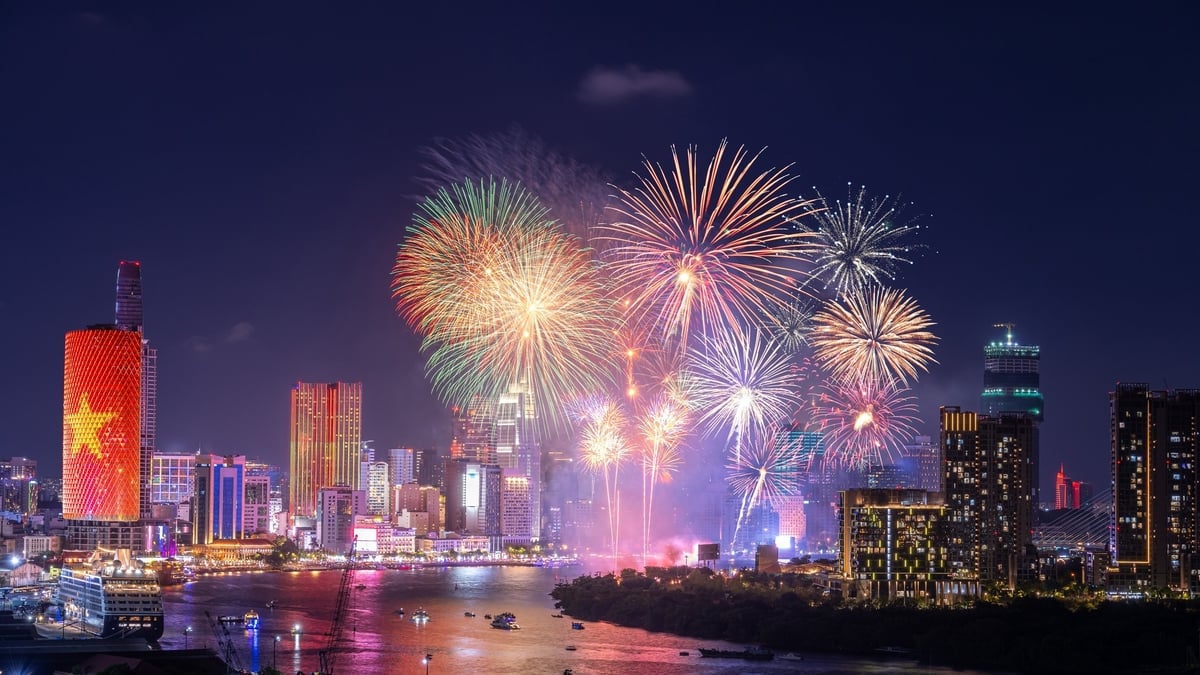



















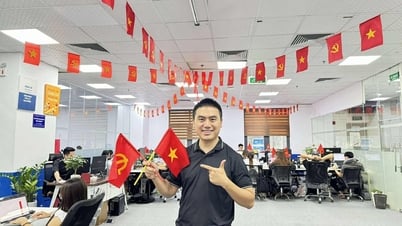













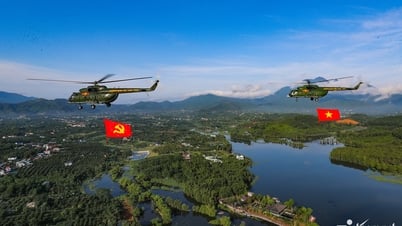
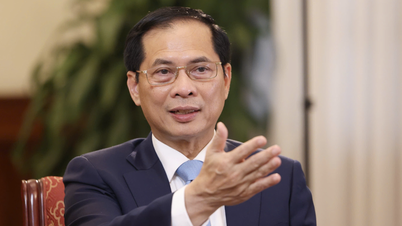

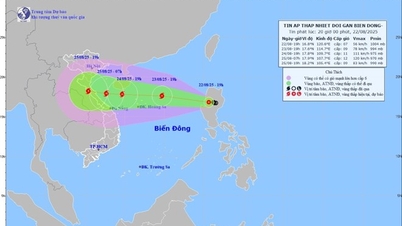

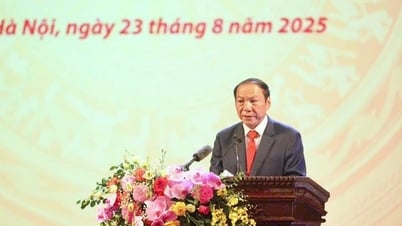


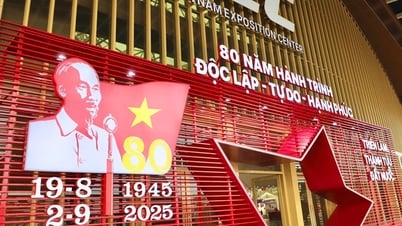
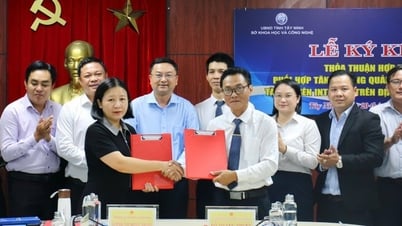


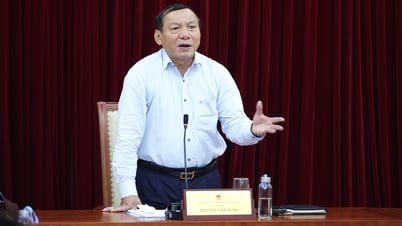
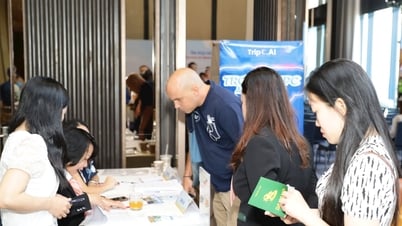






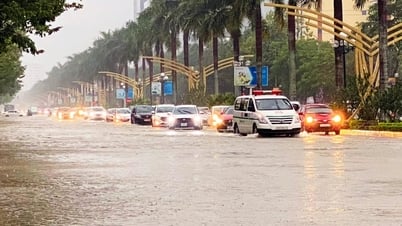





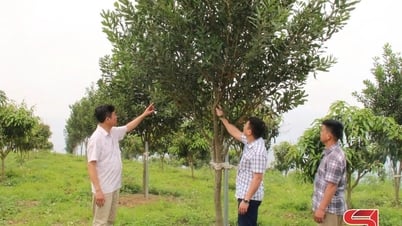

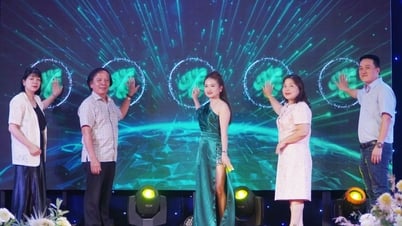





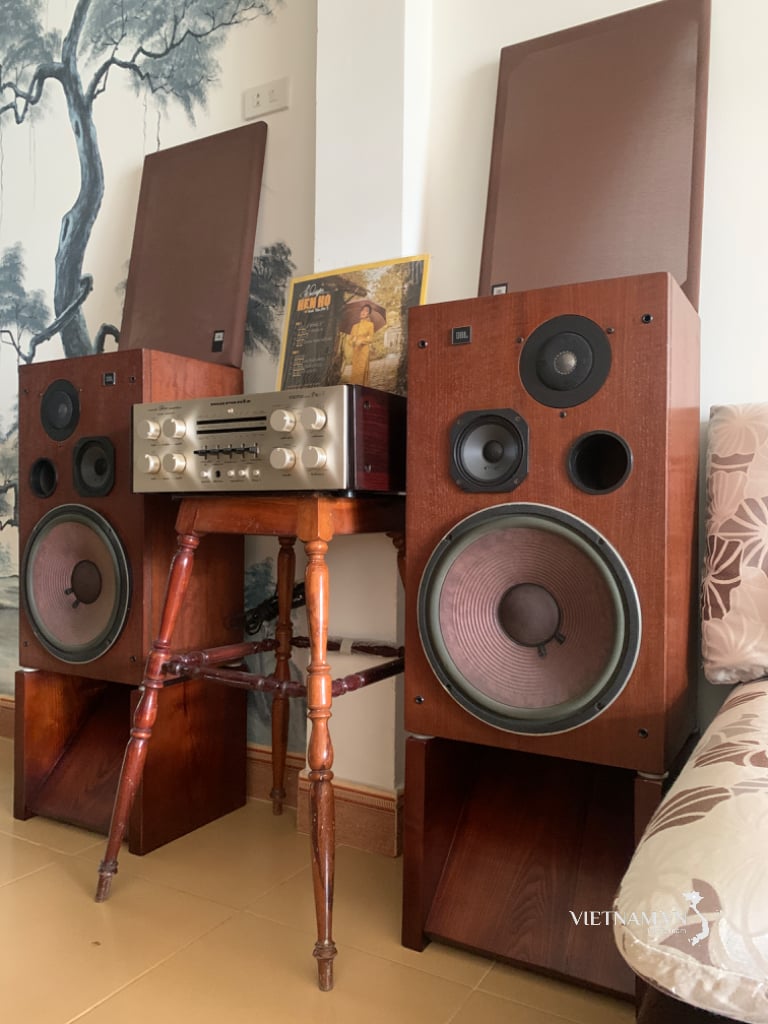

Comment (0)